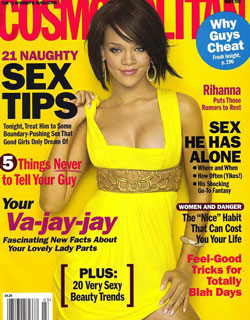 There’s a lot to learn and know about the craft of writing well. There are the literary building blocks, or as Roy Peter Clark puts it, writing tools: things like word choice, structure, description, rhythm, transitions, details.
There’s a lot to learn and know about the craft of writing well. There are the literary building blocks, or as Roy Peter Clark puts it, writing tools: things like word choice, structure, description, rhythm, transitions, details.
But then there are the more technical, marketing-minded elements of the business, the stuff that separates unknown bloggers from people who can quit their day jobs and live off the income from full-time blogging: search-engine optimization, social network marketing, and, finally, the art and science of writing good headlines.
The latter raises some interesting questions for the writer. Brian Clark at CopyBlogger advocates writing headlines first, then drafting a story to fit it. In short: start with a catchy, marketable, DIGG-able headline, then invent story to go underneath it:
Start with the headline first.
You’ll of course have a basic idea for the subject matter of your blog post, article, free report or sales letter. Then, simply take that basic idea and craft a killer headline before you write one single word of the body content.
Why?
Your headline is a promise to prospective readers. Its job is to clearly communicate the benefit that you will deliver to the reader in exchange for their valuable time.
His series of posts on effective headline writing includes tutorials like “10 Sure-Fire Headline Formulas That Work” and “7 Reasons Why List Posts Will Always Work.” He also advocates the “The Cosmo Headline Technique for Blogging Inspiration“.
His suggestions make sense, especially if your goal is to maximize clicks and boost your profile. It also feels somewhat mercenary and transactional. Perhaps its the genre of blogging he promotes, but it seems to reduce all writing to a “what’s in it for me?” exchange.
Maybe he’s right. I’ve tried his method on some of my posts at Examiner.com with mixed results. I’ve used some of his “headline formulas”: some worked, some failed miserably.
Overall, I think the approach is dangerous. Yes, your headline should tease readers to check out your piece. And yes, it should provide a “promise” to the readers that if they read your work, it will be worthwhile. But if writers make it their routine to start with a search-engine-optimized, formula-driven headline, won’t it often lead to equally unoriginal and formulaic writing?
There’s nothing wrong with maximizing your chances at attracting a big readership through smart use of the web, but if you start with those goals in mind, then think about your actual ideas and writing second, aren’t you giving up a lot? As the old expression goes: is the tail wagging the dog?
